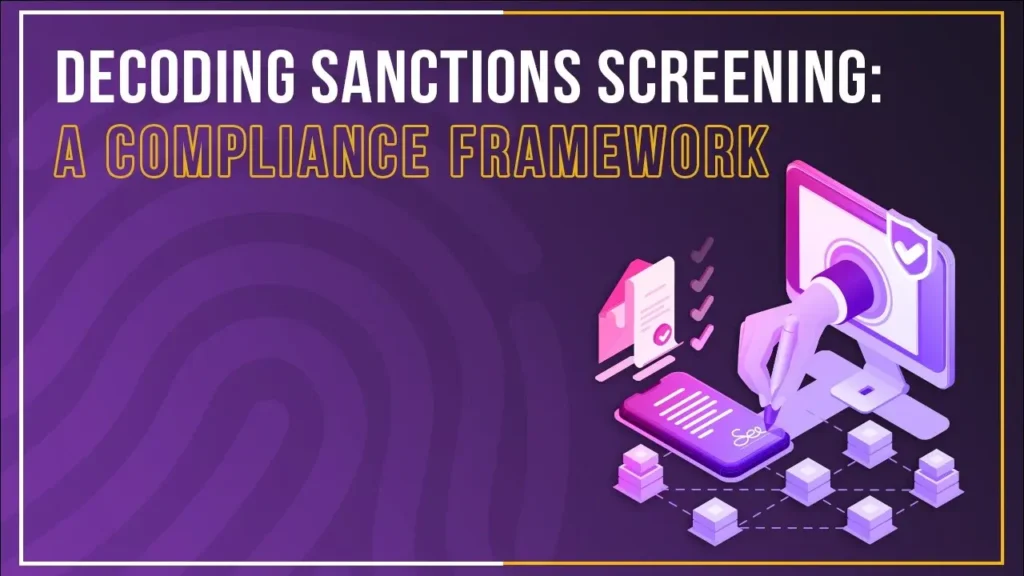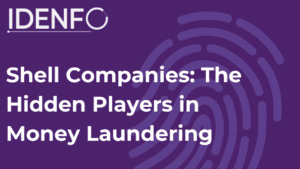In today’s rapidly evolving regulatory environment, sanctions screening is a critical element of any robust compliance program. As global financial crimes continue to rise, businesses are required to stay vigilant and proactive to prevent involvement in illicit activities. Sanctions screening involves identifying individuals, entities, or countries subject to economic or legal restrictions, often imposed by government bodies or international organizations.
Retailers can quickly onboard customers with Idenfo Direct's identity verification tools, enhancing compliance and reducing the risk of fraud. In this comprehensive guide, we will decode the concept of sanctions screening and outline a compliance framework that businesses can implement to stay on the right side of the law.
Understanding Sanctions Screening
Sanctions are punitive measures imposed by regulatory authorities against countries, entities, or individuals engaged in unlawful activities, including terrorism, human rights violations, or money laundering. The objective of sanctions screening is to detect and block transactions related to sanctioned parties, thus mitigating risks for financial institutions and businesses.
Sanctions lists are maintained by various authorities, including:
- United Nations Security Council (UNSC)
- Office of Foreign Assets Control (OFAC)
- European Union Sanctions (EU)
- UK Sanctions List (HMT)
- Financial Action Task Force (FATF)
Failing to comply with these sanctions can result in severe penalties, legal action, reputational damage, and potential loss of business licenses.
Key Components of Sanctions Screening
To build an effective compliance framework, it is crucial to understand the components that make up sanctions screening. These include:
Data Collection and Management
Efficient sanctions screening starts with collecting accurate customer data, including names, addresses, identification numbers, and other relevant information. Retailers can quickly onboard customers with Idenfo Direct's identity verification tools, ensuring that customer data is reliable and up-to-date.
Screening Against Sanctions Lists
Businesses must screen customer data against various sanctions lists. This process requires the use of automated systems that continuously update databases and cross-check information to identify potential matches.
Risk Assessment and Profiling
Not all matches warrant the same level of scrutiny. Conducting risk assessments helps categorize customers and transactions based on their risk profiles, allowing businesses to focus on high-risk cases. Automated risk profiling, available through platforms like Idenfo Direct, reduces manual errors and enhances accuracy.
Real-Time Monitoring
Money launderers and sanctioned individuals often adapt their tactics to bypass compliance measures. Implementing real-time monitoring tools helps detect suspicious activities as they happen, enabling swift responses to mitigate risks.
Reporting and Documentation
When potential matches are identified, businesses must generate Suspicious Activity Reports (SARs) and document their findings. Maintaining detailed records of screening activities is essential for audit trails and regulatory compliance.
Challenges in Sanctions Screening
Sanctions screening is not without its challenges. Some common obstacles include:
1. Data Quality and Accuracy
Poor data quality can lead to false positives or false negatives, causing unnecessary investigations or missed threats. Investing in reliable data management tools is critical to reducing errors.
2. Name Variations and Aliases
Sanctioned individuals may use aliases, nicknames, or name variations to evade detection. Screening systems must account for these variations to improve match accuracy.
3. Volume of Transactions
High transaction volumes can overwhelm manual screening processes, making automation essential to keep up with daily activities.
4. Evolving Sanctions Lists
Sanctions lists are frequently updated, and businesses must ensure their systems are always using the most current data. Automated list updates streamline this process and reduce compliance gaps.
Building an Effective Compliance Framework
Creating a comprehensive sanctions screening framework involves several key steps:
1. Implement Automated Screening Systems
Manual screening is impractical for high-volume businesses, especially in retail. Automated systems like Idenfo Direct simplify the process by continuously monitoring customer data and cross-referencing it against updated sanctions lists.
2. Conduct Ongoing Risk Assessments
Risk is not static, and continuous assessment helps businesses stay ahead of emerging threats. Automating this process enhances efficiency and accuracy.
3. Regular Training and Awareness
Employees should be trained to recognize red flags and understand the importance of sanctions screening. Regular training sessions ensure staff members are well-versed in compliance practices.
4. Maintain Robust Documentation
Comprehensive records are crucial for demonstrating compliance to regulators. Documenting screening outcomes and decisions helps maintain transparency and accountability.
5. Leverage Advanced Technologies
Technological advancements, such as artificial intelligence (AI) and machine learning (ML), enable predictive analytics and pattern recognition. These tools enhance the detection of suspicious activities and reduce false positives.
Why Choose Idenfo Direct?
Retailers can quickly onboard customers with Idenfo Direct's identity verification tools, enhancing compliance and reducing the risk of fraud. The platform’s advanced screening capabilities and real-time monitoring provide comprehensive protection against illicit activities. From automated risk assessments to seamless customer onboarding, Idenfo Direct is designed to simplify compliance for businesses of all sizes.
Sanctions screening is an integral component of any compliance strategy. By establishing a robust framework and leveraging solutions like Idenfo Direct, businesses can efficiently detect and mitigate risks associated with sanctioned individuals or entities. Proactive compliance not only protects your brand but also fosters customer trust and regulatory confidence.
Get in touch with Idenfo MENA today to learn how our solutions can enhance your compliance efforts and secure your business against financial crime.









